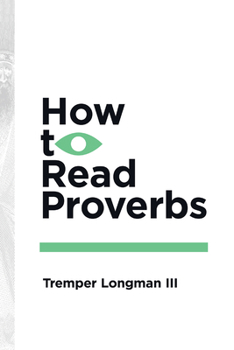Book Overview
Better is a dry morsel with quiet than a house full of feasting with strife.
A perverse person spreads strife, and a whisperer separates close friends.
Go to the ant, you lazybones; consider its ways, and be wise.
Everyday we make choices on the path of life. Proverbs are memorable capsules of wisdom, chiseled in words and polished through use by those who have traveled that path ahead of us. But the proverbs of the Bible make a greater claim than "a penny saved is a penny earned." They are woven into the web of divine revelation, rooted in the "fear of the Lord" that is the beginning of wisdom.
While many proverbs speak to us directly, we can gain much greater insight by studying the book of Proverbs as a whole, understanding its relationship to ancient non-Israelite wisdom and listening to its conversation with the other great voices of wisdom in Scripture--Job and Ecclesiastes.
In How to Read Proverbs Tremper Longman III provides a welcome guide to reading and studying, understanding and savoring the Proverbs for all their wisdom. Most important for Christian readers, we gain insight into how Christ is the climax and embodiment of wisdom.





